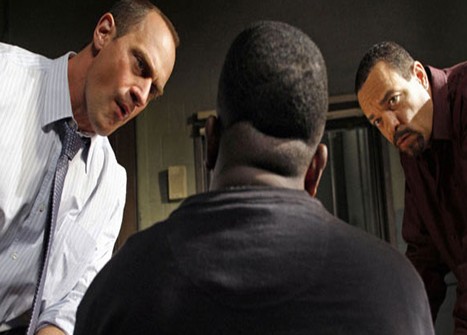考研阅读精选:沉默是金
来源:新东方在线
发布时间:2016-10-14
『人们可能会承认自己没干过的事情,这让人诧异和担忧。』
Silence is golden
沉默是金
Aug 13th 2011 | from The Economist

SINCE 1992 the Innocence Project, an American legal charity, has used DNA evidence to help exonerate 271 people who were wrongly convicted of crimes, sometimes after they had served dozens of years in prison. But a mystery has emerged from the case reports. Despite being innocent, around a quarter of these people had confessed or pleaded guilty to the offences of which they were accused.
It seems hard to imagine that anyone of sound mind would take the blame for something he did not do. But several researchers have found it surprisingly easy to make people fess up to invented misdemeanours. Admittedly these confessions are taking place in a laboratory rather than an interrogation room, so the stakes might not appear that high to the confessor. On the other hand, the pressures that can be brought to bear in a police station are much stronger than those in a lab. The upshot is that it seems worryingly simple to extract a false confession from someone—which he might find hard subsequently to retract.
One of the most recent papers on the subject, published in Law and Human Behavior by Saul Kassin and Jennifer Perillo of the John Jay College of Criminal Justice in New York, used a group of 71 university students who were told they were taking part in a test of their reaction times. Participants were asked to press keys on a keyboard as they were read aloud by another person, who was secretly in cahoots with the experimenter. The volunteers were informed that the ALT key was faulty, and that if it was pressed the computer would crash and all the experimental data would be lost. The experimenter watched the proceedings from across the table.
In fact, the computer was set up to crash regardless, about a minute into the test. When this happened the experimenter asked each participant if he had pressed the illicit key, acted as if he was upset when it was “discovered” that the data had disappeared, and requested that the participant sign a confession. Only one person actually did hit the ALT key by mistake, but a quarter of the innocent participants were so disarmed by the shock of the accusation that they confessed to something they had not done.
A second computer-crash test is conducted by Dr Kassin and Dr Perillo. Another person in the room beside the experimenter said he saw the participant hitting the ALT key. In this case the confession rate jumped to 80% of innocent participants. Dr Horselenberg and his colleagues found something similar.
Dr Kassin also tested the impact of bluffing. Two participants, one of whom was again in cahoots with the investigator, sat in the same room and were asked to complete what appeared to be an academic test. Halfway through, the investigator accused them of helping each other and cited the university’s honour code against cheating. The investigator went on to bluff that there was a video camera in the room, though the recording, with its definitive proof one way or the other, would not be accessible until later. In the real world, this might be like a detective telling a suspect that DNA or fingerprint evidence had been found but not yet analysed (in Britain as well as America, if such a statement were actually true, police would be permitted to say it, though in the case of the experiment it was a lie). Presumably, the innocent participants knew such a tape would exonerate them. Even so, half still confessed.
All of which is both strange and rather alarming. Dr Kassin suggests that participants may have the naive—though common—belief that the world is a just place, and that their innocence will emerge in the end, particularly in the case of the alleged video evidence. One participant, for example, told him, “it made it easier [to sign the confession] because I had nothing to hide. The cameras would prove it.”
In cases like that, confession is seen as a way to end an unpleasant interrogation. But it is a risky one. In the real world, such faith can be misplaced. Though a lot of jurisdictions require corroborating evidence, in practice self-condemnation is pretty damning—and, it seems, surprisingly easy to induce.
热门推荐:
课程 文章 问答 资讯 评论 百科
- 比较正规的考研培训机构12-04
- 研究生考试辅导培训课程哪家好12-04
- 考研网络课程哪个比较好12-04
- 考研专业课培训哪个机构好12-02
- 哪个培训班的考研比较好11-29
- 比较靠谱的考研辅导班11-29
- 考研英语一阅读教学视频06-14
- 烟台考研英语辅导06-14
- 考研网课补习班哪个好03-04
- 考研培训班哪家网校好03-04
- 考研辅导视频教程哪个好03-04
- 考研培训机构哪一家好03-04
- 考研培训班哪个机构的好12-04
- 考研网课机构哪个比较好12-04
- 考研专业课辅导班班哪个好12-04
- 网上哪个考研培训班靠谱12-04
- 哪个考研培训机构比较靠谱12-02
- 考研政治课程哪个网课比较好12-02
- 西综考研哪个老师讲得好03-31
- 管综考研哪个老师好03-17
- 护理考研哪个老师讲得好03-16
- 考研政治网课哪个老师好03-16
- 考研数学网课哪个老师讲得好03-15
- 考研英语网课哪个老师好03-14

